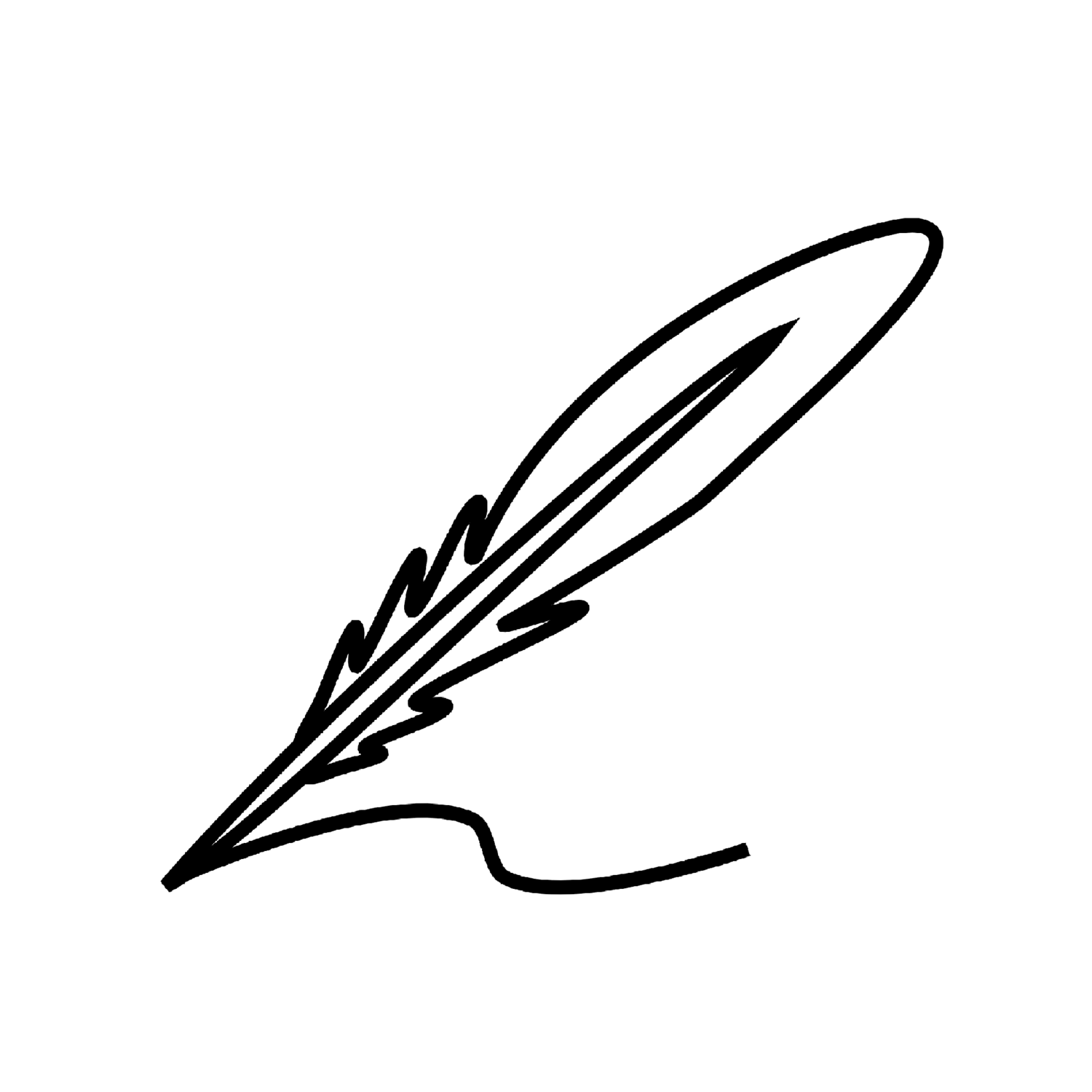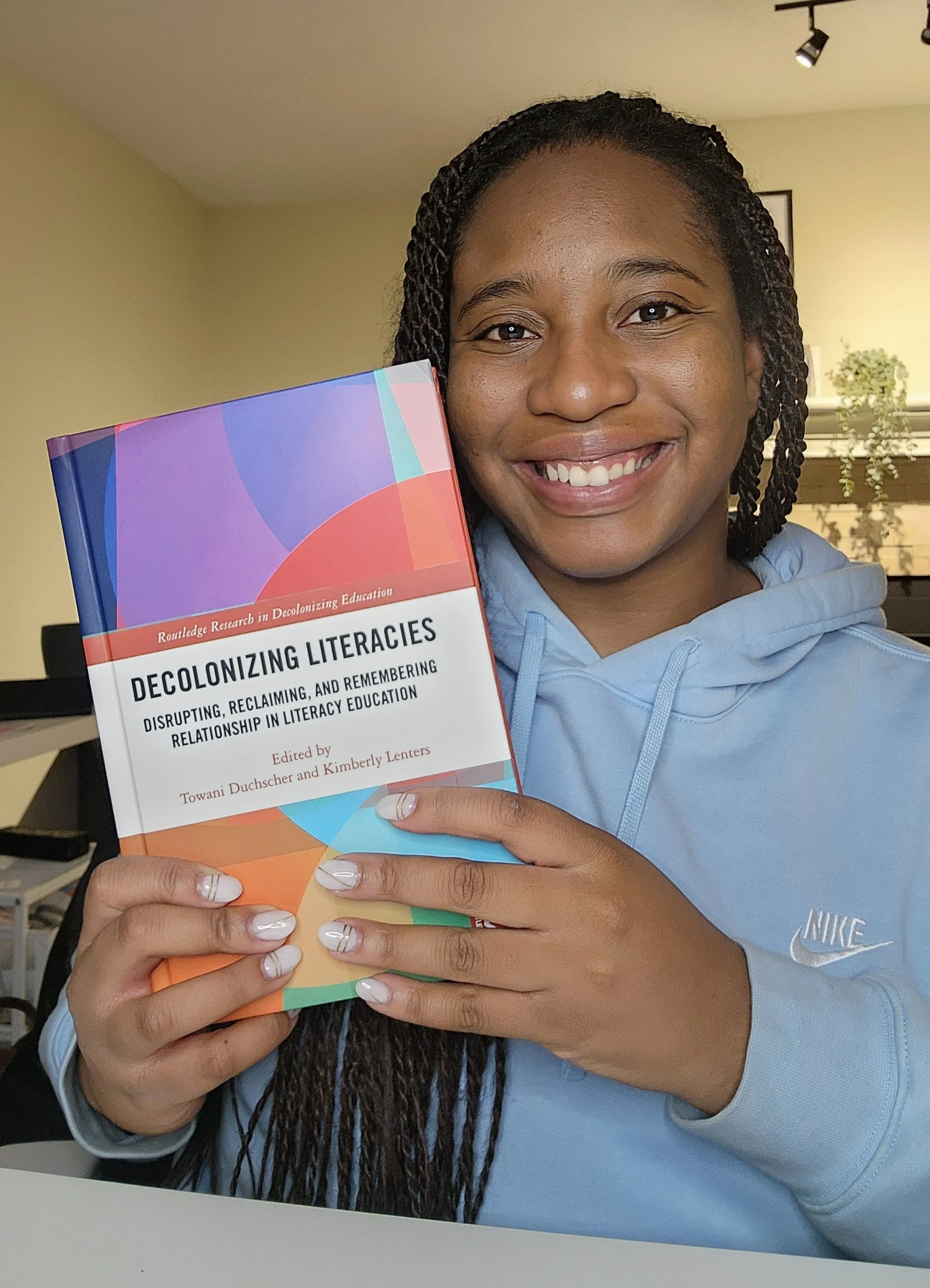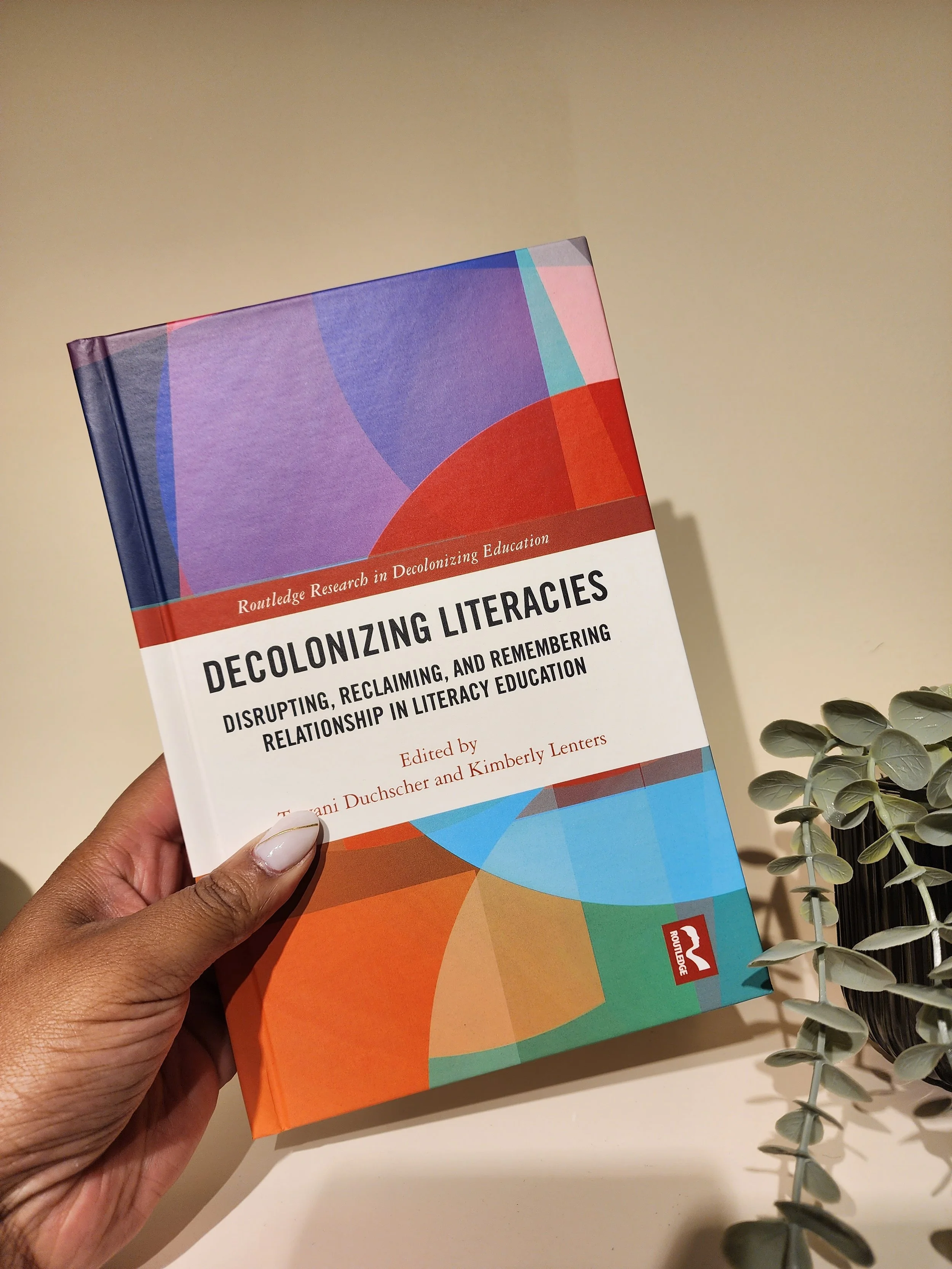My first academic publication- How did I get here ?
Today is a day to celebrate!
A couple of years ago, I participated in a program as a Learning facilitator with the Werklund School of Education at the University of Calgary, led by Dr. Towani Duchscher and Dr. Kim Lenters.
It was a set of workshops, discussions and research into “Disrupting, Reclaiming, and Remembering Relationship in Literacy Education”.
At the end of the workshops, a publication was compiled that we all contributed to and today it was published: Decolonizing Literacies Disrupting, Reclaiming, and Remembering Relationship in Literacy Education.
So, how did I get here,
and how did I feel about it?
My Complicated Relationship with Academia:
When Towani reached out to me, I said yes immediately - I didn't even check my calendar. Why? I did my undergrad at the University of Calgary and saw only one Black professor in my five years there. So, I wanted to support Black Women in Academia and their research.
I also wanted to prove to myself that my poetry had a place in academia. I’ve never been academically inclined compared to the rest of my family and friends, and being at the University was a struggle for me. I enjoyed learning, but it seemed like academia rejected everything about me. I was very much in love with the idea of research and writing academic papers, but it seemed like it wasn't very in love with me, so I gave up on it.
So imagine my eagerness when I found out I could be part of something academic. I wanted to show myself, my parents, my friends, and the school that I was “smart” too. This was something that actually changed during the course of the program.
2. Defining myself as a “Professional” :
At this point, I was still struggling to introduce myself as a professional poet and spoken word artist. The imposter syndrome was strong, and I didn't think I was “qualified” to be a part of something like this with accomplished academics and artists. It was daunting to me.
I was in awe when I saw the names of the other Learning Facilitators. I couldn't believe that I was going to be in the same room as them, learning and teaching with them. I began to doubt that I had anything to offer.
As time went on, I saw that we all had something to offer, my lived experiences with the educational system especially growing up in South Africa where we learn so much about colonial history and so little of the Indigenous histories.
I grew up learning about Shakespeare and Wilfred Owen, and here I was doubting if my words could ever make an impact.
It took me a long time to find my comfort in my art and writing and these workshops definitely helped with that.
3. The Prospects of Publication:
Publication. The word that makes aspiring authors’ ears perk up at the word.
As I mentioned before, I was still establishing myself in the art world, and I hadn't been published yet, and oh, did I want to be. Publication carries weight when you’re a writer. It gives you credibility, visibility, and authority.
At this time, I didn't know there were multiple venues for publication, which I wrote about in one of my previous blog posts: “5 Ways to Gain Publishing Experience as a Poet” Especially as, in the end, I was published multiple times before this academic publication came out.
4. Facilitation Experience:
Being able to have multiple avenues of income as an artist is a blessing. The best part about being an artist is that you have so much more to offer besides your art because of all the time you have spent on your art form.
One of the ways artists, specifically poets, can make more income and gain interpersonal skills and teaching experience is through workshop facilitation. During my time in the program, I was able to give a workshop about finding your poetic voice, taking your feelings and turning them into poetry, and dismantling the traditional idea of what poetry “should be.” It was very refreshing, and I had not given a workshop to a group this large that wasn't a youth demographic.
5. Justification: Was I looking for validation?
Growing up as the first daughter of an African household with academically inclined parents and siblings, I needed to prove to not just myself but my family that my work was worth something. Choosing to be an artist was not a mistake. That I could learn and teach others through my poetry, and that my art carried weight.
Going to therapy in my early 20s after having a considerably bad time at school, I realized my whole life seemed to be about proving myself as a person. That my feelings, wants, and dreams were valid, and that my choices weren’t a bunch of mistakes.
6. Falling in Love: Finding my passion again
I fell in love with my art again. All these feelings above are normal things that many artists may have felt during their time trying to figure out how to professionally do what they love without a laid-out path for them.
All the reasons above were external factors that had nothing to do with how I felt about my work and where my motivation and inspiration came from.
This program helped me realize why I love stories, telling them, and hearing them. Stories are how we understand the lives of others. When someone asks, “Who are you?” we immediately begin to tell a story about ourselves, and how much we share may differ from person to person and situation to situation.
Being in a room full of people who are here to not just tell their stories but to help create ways for the stories of others to be told is a beautiful thing.
Main Takeaways: What have I learned?
Academia is something rooted in colonialism and should be discussed, analyzed, and broken down to make way for other ways of learning and sharing information.
Be confident in your art form. Your experience might be the thing that makes a difference in someone else's life as well as your own.
Publication is a great feeling, and I need to learn to appreciate and celebrate this big win for myself and my career while not getting lost in over analysis.
Recognition from yourself should come before others.
Thank you all for reading this post, it was quite a reflective one, and I haven’t written one in in a while!
Thank you to everyone involved in this publication, I am forever grateful to have worked and listened alongside you:
Dr. Towani Duchscher, Dr. Kimberly Lenters, Harrison Campbell, Danni Chen, Zahra Golneshan, Dr. Sonia Aujla-Bhullar, Dr. April Baker-Bell, Lesley Tait, Autumn Leona EagleSpeaker, Janis Weasel Bear-Johnson, Dr. Bianca Nightengale-Lee, AJA Louden, Ajay Musodi, Rosman Valencia, Dwight Farahat, and Courtney Walcott.
Thank you, University of Calgary, Werklund School of Education and Routledge Publishers.
Most of all, thank you to the Indigenous people of Turtle Island who shared their knowledge with me.
Your stories deserve to be told and I hope more research like this can be done to include more of your histories and stories.


